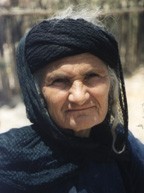Shikaki in Iran

Photo Source:
Bethany World Prayer Center
|
Send Joshua Project a map of this people group.
|
| People Name: | Shikaki |
| Country: | Iran |
| 10/40 Window: | Yes |
| Population: | 32,000 |
| World Population: | 59,000 |
| Primary Language: | Kurdish, Northern |
| Primary Religion: | Islam |
| Christian Adherents: | 0.00 % |
| Evangelicals: | 0.00 % |
| Scripture: | Complete Bible |
| Ministry Resources: | Yes |
| Jesus Film: | Yes |
| Audio Recordings: | Yes |
| People Cluster: | Kurd |
| Affinity Bloc: | Persian-Median |
| Progress Level: |
|
Introduction / History
The Shikaki are part of a much greater Kurd population. They are made up of a number of clans, tribes and tribal confederations, many of which have been in existence for thousands of years. This large people group shares several important and common ties. Not only do they speak closely related languages, but they also share a common culture, geographical homeland and sense of identity. Kurdish people are basically more alike than are other people groups, and they feel it. The Shikaki Kurds are a confederacy of tribes of northern Kurdistan. They live primarily in the mountainous area where the borders of Turkey, Iran, and Iraq meet, in the district of Dustan and Qotur, northwest of Lake Urmia. These various tribes and clans are distinguished by the languages they speak. The Shikaki language is possibly a dialect of Kurmanji, the largest Kurdish language group. Apart from the Shikaki Kurds of Iran, you can find other large communities of them in Turkey and Iraq.
What Are Their Lives Like?
In recent times, particularly since the early 1930s, the tribal organizations of the Shikaki Kurds have been largely suppressed. As a result, many of the nomads have moved from the rural, economically depressed areas into the cities. There, industry provides jobs for a small segment of the population, while the others are engaged in trade, services and craft work. Basic Kurdish society is mainly rural, with most people making their living from farming and raising livestock. Most are fairly settled; however, some still practice a semi-nomadic lifestyle, moving from place to place with their herds of goats and sheep. The nomadic shepherds move into the mountain areas during the summer and down to the plains in the winter. Although Kurdish farming techniques are somewhat archaic, they are now being integrated into the capitalist market. Cotton, sugar, beets, and tobacco are replacing the traditional food crops. The Kurds grow them both to sell in the market and for export. Their daily diet is built around bread, dairy products, dates, tea, and meat. Pork and alcoholic beverages are tabooed because of their Muslim religion. Kurdish women generally enjoy more freedom than do the Arabian, Turkish, or Persian women. For example, they seldom wear veils. Although they are modest in their behavior, they are not particularly shy of strange men.
What Are Their Beliefs?
Nearly all Kurds are Muslims, most being from the conservative Shafite Sunni school of Islam. They first embraced Islam after the Arab conquests of the seventh century. Today, they look to Islam as a basis for social justice. Even so, in rural areas, some also believe in jinnis (spirits capable of assuming human or animal forms). Many are also involved in elements of animal worship. Such beliefs do not conform to any form of Islam. Mullahs (Muslim spiritual leaders) play an important role in the social and cultural life of those living in the country. Until recent times mullahs would act as village witch doctors, performing ceremonies and reciting chants to drive out madness or cure the sick. Religious fraternities still operate throughout this region of the world. In the past, some influential sheiks (spiritual leaders) even became members of parliament. However, their authority eventually began to crumble. Today, their spiritual and economic power is being challenged.
What Are Their Needs?
Like other Kurds, the Shikaki need to put their identity in Jesus Christ, the solid rock.
Prayer Points
Pray that the sheer wonder of knowing Jesus and the impact he has on their lives and the joy he brings spur believers to share Christ with the Shikaki Kurds in Iran. Pray the hearts of the Shikaki people would be stirred by a sovereign work of the Holy Spirit readying them for the time when they hear the gospel message being shared with them. Pray they will experience dreams and visions of Jesus leading them into a saving relationship with him. Pray for an unstoppable movement to Christ among the Shikaki Kurds.